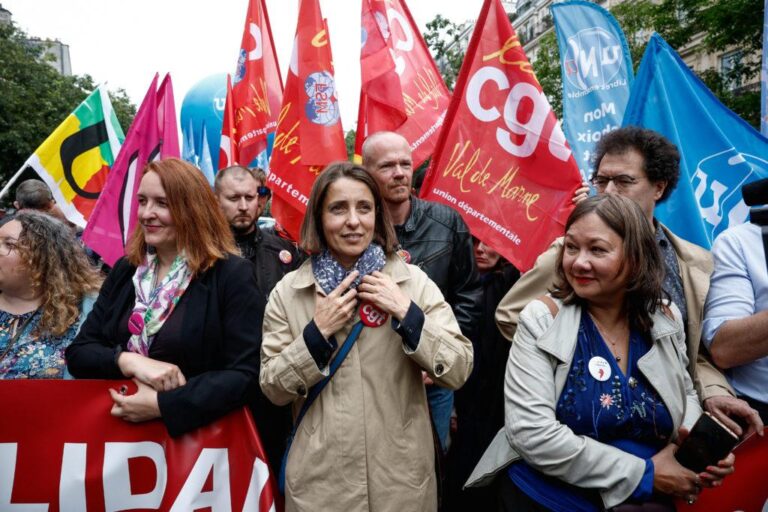Introduction
France is currently witnessing a wave of unprecedented strikes, the largest seen in years, as citizens across the nation rally against proposed pension reforms and rising living costs. This surge in industrial action reflects deep-seated frustrations among workers and unions, igniting a backdrop of social unrest that has simmered for decades. With teachers, transport workers, healthcare professionals, and energy sector employees among the striking groups, the scale and intensity of these protests have caught the attention of both national and international observers. As the French government pushes forward with its contentious policies, many are left asking: what are the underlying causes of this striking upheaval, and what implications could it hold for France’s social landscape and political future?
The Roots of Civil Unrest in France’s Labor Landscape
The tension within France’s workforce has been building for years, fueled by a combination of economic frustration and governmental policies. The recent strikes and protests are largely driven by dissatisfaction with labor reforms that many believe threaten job security and undermine workers’ rights. Key issues include:
- Retirement age changes: Proposed increases have sparked fears of diminished pensions.
- Wage stagnation: A surge in inflation and rising living costs have left many workers feeling undervalued.
- Job precarity: The growing gig economy has created uncertainty in terms of job stability and employee benefits.
Additionally, labor unionsŌĆöhistorically a powerful force in French societyŌĆöare mobilizing their members in response to these perceived threats. They argue that changes to labor laws represent not just a challenge to current employment conditions but a broader assault on the social contract between employees and the state. A recent survey revealed that:
| Concern | Percentage of Workers Affected |
|---|---|
| Job Security | 78% |
| Pension Deductions | 65% |
| Wage Growth | 72% |
Analyzing the Impact of Pension Reforms on Worker Sentiment
The recent pension reforms in France have sparked a profound shift in worker sentiment, leading to some of the most significant strikes seen in years. These reforms, which aim to streamline the pension system, have been perceived by many workers as a threat to their hard-earned benefits. As pensions are often viewed as a critical component of job security, the proposed changes have fueled feelings of betrayal among employees from various sectors. Workers express concerns that the alterations could disproportionately affect the most vulnerable members of the workforce, leading to a pushback that the government may not have anticipated.
In order to gauge public sentiment effectively, a survey conducted by various labor unions revealed the following key points regarding worker opinions on the reforms:
| Worker Response | Percentage |
|---|---|
| Oppose the reforms | 72% |
| Support the reforms | 15% |
| Undecided | 13% |
This data illustrates a significant discontent among the workforce, with many viewing the reforms as a step backward for labor rights. The discourse surrounding these changes has not only influenced public opinion but also ignited widespread protests, encapsulating a growing urgency for the government to listen to its citizens. As these demonstrations continue to unfold, it remains to be seen how the government will navigate this landscape of dissent and whether a compromise can be reached that considers the needs of both the state and its workers.
Voices from the Streets: Perspectives on the Ongoing Strikes
As France grapples with its most significant wave of strikes in recent years, voices from the streets reveal a tapestry of frustration and determination among workers. The discontent has spread across various sectors, reflecting a collective demand for better working conditions, higher wages, and opposition to government reforms perceived as detrimental to workers’ rights. Many demonstrators see these strikes not just as a response to immediate grievances, but as a pivotal fight for the future of labor in France.
Occupational solidarity shines through the diverse groups participating in these protests, uniting public sector workers, healthcare professionals, and transport staff under a common banner. Key demands include:
- Wage Increases: Many are advocating for salaries that match rising living costs.
- Job Security: Workers are seeking assurance against layoffs amid economic uncertainty.
- Improved Working Conditions: Safe work environments that prioritize health and well-being are paramount.
As the strikes continue, polling data highlights the shifting public sentiment towards labor movements, with an increasing number of citizens expressing support for the strikersŌĆÖ causes. Below is a summary of current public opinion:
| Perspective | Support (%) |
|---|---|
| Support for Strikes | 67% |
| Opposition to Government Reforms | 58% |
| Concern Over Job Security | 75% |
Strategies for Resolution: Potential Paths to Calm Tensions
To mitigate the current unrest, stakeholders must prioritize open dialogue between the government and unions. Establishing a platform where both sides can freely express their concerns will alleviate misunderstandings and help rebuild trust. Such platforms might include:
- Regular town hall meetings with citizens and leaders
- Focus groups that explore specific issues in depth
- Online forums to gather broader public input
Moreover, the government might consider implementing policy adjustments that can bridge divides. These alterations could focus on aspects affecting the workforce, such as:
| Policy Area | Proposed Adjustment |
|---|---|
| Retirement Age | Gradual increase with flexible options for earlier retirement |
| Wages | Minimum wage adjustments in line with inflation |
| Job Security | Enhanced protections for temporary workers |
The Conclusion
In conclusion, France’s current wave of unprecedented strikes underscores a nation grappling with deep-seated social and economic tensions. As workers rally against proposed reforms that they believe threaten their rights and livelihoods, the echoes of discontent resonate across various sectors. The unfolding situation reflects not only immediate grievances but also broader questions about the future of labor rights and social cohesion in France. With the government standing firm on its policies, the coming weeks will be pivotal. As negotiations continue, both sides face the challenge of finding common ground in a society increasingly polarized by economic pressures and differing visions for the future. The eyes of the world remain on France as it navigates this critical juncture in its labor and political landscape.




